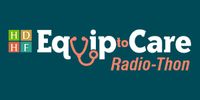The Ministry of Education is asking students and parents to participate in an online survey to formulate a plan for provincial education heading into the next decade. The important thing in determining this pathway is to know who is interpreting the data and how it is being interpreted.
Dr. Alec Couros, Professor of Information and Communication Technologies at the University of Regina and Humboldt native son, errs on the side of caution when it comes to drawing conclusions. This particular survey allows for open-ended responses, answers that allow the participant a more open expression than multiple choice or scales of agreement. The participant can type in opinions to prompts like "what is good" or "what needs improvement" with the current education model. Couros acknowledges that this format can be a rich source of information, but it may also inherently be subject to a degree of bias.
Couros explains, "I think it's great that we have this more qualitative data that's available. The problem is unless you take this data and analyze it in fairly systematic ways you're not going to able to pull out the particular meaning in a non-biased way." Couros suggests that in all research, there is potential for elements of bias in the interpretation. However, while there is valuable information to be gleaned from open and opinion based responses, Couros cautions against the liberties that can be taken with such data.
Couros is positive about the opportunity for public input that is being provided. He commends the survey as being an input mechanism for the public to be involved in shaping education. At the end of the day though, he acknowledges, "it's really important to get a sense of what's being done with this data."
To counter any inherent bias with a single entity interpreting the information gathered by the survey, Couros suggests another approach.
"If the government is truly going to be open and really serious about letting this data count, you need to develop a consortium of several different agencies to be able to interpret this data. There are many different stakeholders. We're looking at students, to parents, to teachers, to government officials who have to draw up a budget. There's the SSBA (Saskatchewan School Boards Association) and the STF (Saskatchewan Teachers' Federation). We need to have a collection of voices at the table who have access to the data, perhaps redacted."
Whether the data is analyzed in a collective or taken and interpreted by individual stakeholders, Couros is of a mind that more players will make for greater validity and a stronger report with more meaningful outcomes.
Couros is adamant about the approach stating, "If we don't do something like this, we will see a pro-teacher voice, or a pro-government voice, or a pro-taxpayer voice. We have to make sure that all these bodies come to the interpretive table to make sure that they inform policy. Any single one of those agencies without the others will produce too high a bias and that's something we have to get away from if we want to create truly informed education policy."
The survey is available through the Government of Saskatchewan website until May 10th.











